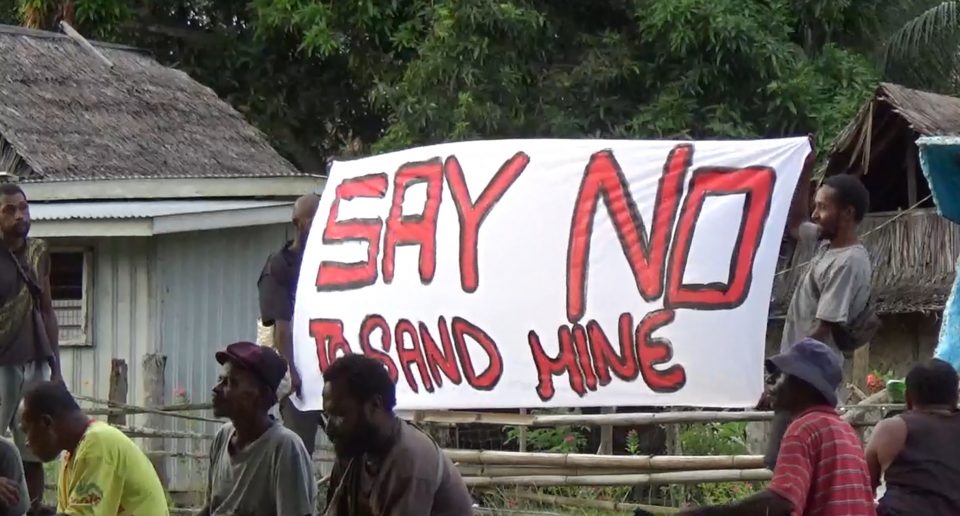As a Singaporean company with Chinese interests works to get approval to mine sand along North Coast of Madang, many Papua New Guineans are unaware of the impacts of this multibillion-dollar global industry.
Sand Mining remains, largely, under the radar in Papua New Guinea. The lack of understanding of the environmental and social impacts of sand mining puts communities at risk of bad decisions that could cause widespread destruction.
In September, when the Mineral Resources Authority conducted mining warden hearings at villages at the Sumgilbar Local Level Government in Madang, some of the meetings were met with resistance from the locals who felt there was not enough consultation and awareness.
Niugini Sands Limited wants to mine a 50-kilometer stretch of beaches where people from 10 communities live. The beaches also include the villages of Tokain and Karkum where endangered leatherback turtles come to nest every year.
Wenceslaus Magun, who heads MAKATA, a local NGO dedicated to preserving turtle nesting areas, says the lack of consultation and awareness is a serious concern.
“We have written to the Environment Minister expressing our objection to sand mining. We have to understand the impacts of the project.”
Local Level Government politicians have met with representatives of Niugini Sands Limited. Those against the project say unless there is widespread awareness, the decisions that could possibly be made by the customary landowners and local level government leaders could result in the displacement of villagers.
Overseas, there is growing concern about the rate at which sand is being mined around the world. In Asia, much of the demand is being driven by construction in Singapore and China.
In small Pacific states, beach sand is the primary source of aggregate. Governments have to contend with their own development needs and pressure to protect delicate natural environments.
In many emerging economies, weak laws and poor enforcement of regulations have given rise to ‘sand mafias.’
“No sand, no modern civilization,” says American-Canadian investigative journalist, Vince Beiser who is an authority on sand mining and its links to organized crime.
“In Gambia, in Kenya, in Indonesia and many other places, people have been assaulted, tortured, and murdered all over sand.”
One of the international faces of the anti sand mining push is Indian environmentalist, Sumaira Abulali. Speaking on a Ted Talks series, she recounts experiences that resonate with Papua New Guineans who own land.
“We take urbanization for granted but it also means, people are dispossessed of their land.”
Sumaira Abdulali is also one of many victims of sand mafia violence in India.
“The sand mining story began because I was attacked.”
The enormous consumption of construction sand means that Papua New Guinea’s beaches are now in the sights of multinational corporations keen to get hold of cheap sand for export.
In this multi-billion-dollar global industry, it is the money that matters and large-scale urban development which drives the demand for sand.
While the Papua New Guinea government has reiterated that other sand mining projects will be governed by the Mining Act, specific legislation on sand mining and understanding of its impacts is lacking and that, in itself, opens up opportunities for abuse.
Click here YouTube link to watch the video.


